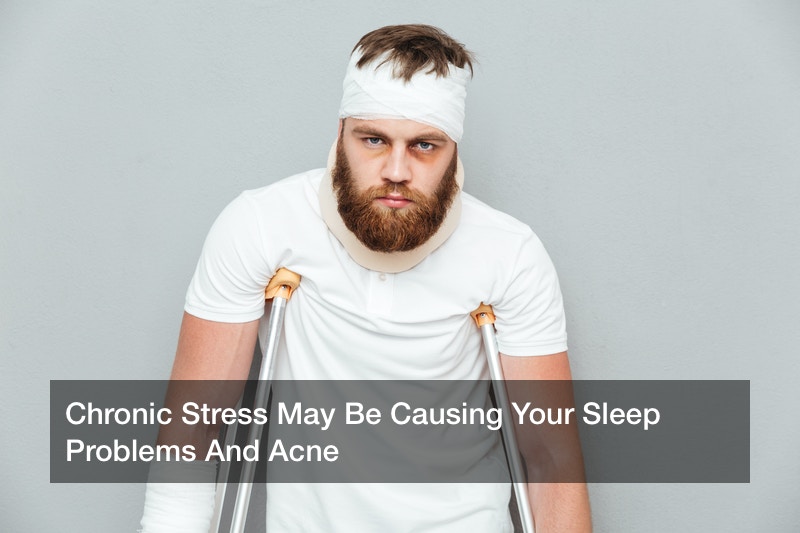
Stress could be negatively affecting your quality of sleep, new data shows. According to a recent study from the Baylor College of Medicine, stressful and busy days can take a toll on the quality of sleep you get and could be the reason you wake up feeling tired.
Dr. Annise Wilson, the lead author of the study, says the link between poor sleep quality and stress isn’t new. But their latest findings serve as a reminder that stress can interfere with your sleep schedule. One of the most common ways stress can impact you is insomnia, Wilson says.
“High levels of stress impair sleep by prolonging how long it takes to fall asleep and fragmenting sleep,” said Wilson. “Sleep loss triggers our body’s stress response system, leading to an elevation in stress hormones, namely cortisol, which further disrupts sleep.”
Previous research has shown that sleep plays a vital role in memory and learning. Cognitive functioning may be improved with dopamine, a neurotransmitter produced when doing puzzles or exercising.
The body naturally increases its dopamine levels after a sleepless night in an attempt to compensate for sleep loss, but this doesn’t replace the body’s need for sleep. Chronic sleep deprivation has been associated with decreased endocrine dysfunction, decreased metabolism, and increased risk of cardiovascular issues. Considering that 75% of people are stressed that their smile could hurt their career success, it’s safe to say there’s enough anxiety to go around.
Sleep deprivation and stress can also have an impact on your skin. Although 85% of people will have acne at some point in their lives and much of that acne is caused by bacteria, it can also be caused by stress hormones.
According to Dr. Adam Friedman, an associate professor of dermatology at George Washington University, a stress-related hormone called CRH, or corticotropin-releasing hormone, can bind to the receptors in the skin’s sebaceous glands. This binding increases the skin’s oil production, which can cause acne.
“These sebaceous glands are also immune organs, and they can create inflammation,” said Friedman. “At the end of the day, an acne blemish is basically inappropriate inflammation, and so turning on that immune response can exacerbate swelling or redness.”
This may be why consumers spent nearly $5 billion worldwide on acne treatments in 2016. Instead of trying to treat their skin, consumers may have needed to manage and treat their stress.
Friedman also points out that, when people are stressed, there’s an increase in the body’s nerve signaling. This causes an itchy sensation in the inflamed areas of the skin, which causes people to scratch or pick. This results in even more swelling and redness.
Whether your stress is acute or chronic can also impact the duration and resolution of your breakouts. Friedman says there’s some evidence that chronic stress can have a negative impact on your immune system, which can slow healing.
That means your acne breakouts may be more likely to stick around for longer periods of time and you may be more susceptible to acne scarring.
That being said, it’s important to recognize the signs that you’re dealing with stress, especially chronic stress, before it begins to negatively impact your health and sleep schedule.
You may be able to reduce stress by exercising, using aromatherapy, spending time with friends and family, laughing, learning to say no, keeping a journal, and learning time management. If you can afford it, consider taking a vacation. Alaska, with its beautiful views and 17 of the highest peaks in the U.S., could provide a much-needed respite. If your chronic stress is having a significant impact on your life and you’ve been suffering from sleep deprivation, it may be a good idea to seek out professional help.

